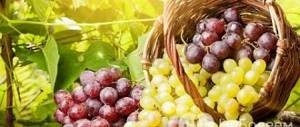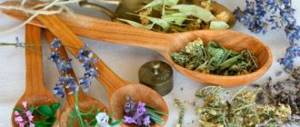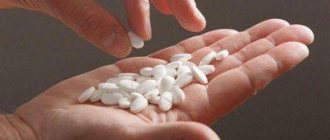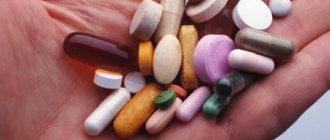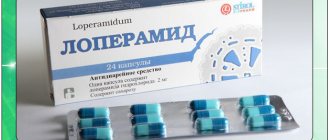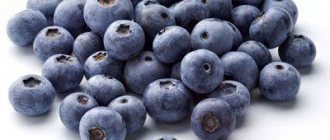Article prepared by:
Vasily Babkinsky
Doctor of the highest category
Diarrhea is a very unpleasant problem that people try to deal with as quickly as possible. Good intestinal function is possible only with a properly formulated diet and adherence to a diet. It is especially important to find out which cereals will be beneficial for diarrhea, and which ones should be avoided so as not to harm your body.
Not all cereals are equally beneficial for diarrhea
Features of the diet
For a speedy recovery and getting rid of an unpleasant problem, you need to choose the right food products. There are several basic dietary rules that should be followed during the treatment of diarrhea. These include:
- meals should be divided 5 to 7 times during the day;
- the portion should be small;
- all foods and medications that have a choleretic effect are excluded;
- Sweets are not allowed - sweets, chocolates, cookies, carbonated drinks;
- the balance of fats and carbohydrates is maintained;
- the dish should consist of soft and easily digestible foods.
Prevention of the condition
To prevent intoxication of the body, you must follow a few simple rules:
- Maintain cleanliness and order in the kitchen and during food preparation;
- check the date of manufacture, expiration date of products and their storage conditions;
- when purchasing and using canned products, pay attention to the color, smell, consistency and taste of the food;
- the presence of mold means that the product is completely spoiled;
- You should not buy ready-made salads with mayonnaise dressing, meat or fish;
- During cooking, it is necessary to observe the temperature regime;
- You cannot store prepared food for more than three days;
- You should always wash your hands before eating;
- eat only in trusted canteens and cafes.
Acceptable cereals during treatment of diarrhea
Porridge plays a big role during diarrhea and should be included in the diet constantly. The list of acceptable types of cereals includes a large number of varieties, so the patient is provided with variety in food:
Oatmeal
This species does an excellent job of restoring intestinal function. To treat with oatmeal, you must follow some rules. It should not be served to small children. Since oatmeal is a complex carbohydrate, it is not recommended to eat it more than three times a week. Quite frequent use leads to weight gain. Recommended for use after diarrhea to restore intestinal function. During constant diarrhea, the situation may worsen, since the product contains a large amount of fiber. Oatmeal has a cleansing effect, rids the body of toxic substances, coats the walls of the stomach and intestines, and prevents their irritation. It should be noted that such food will not stop loose stools. It is useful for restoring the functioning of the gastrointestinal tract after diarrhea. This variety is recommended when the symptom has already begun to subside, and the intestines require a recovery period.
Rice
Rice porridge for diarrhea is the first product indicated in therapeutic dietary nutrition. Rice grains perfectly cleanse the body of waste and toxins. With the help of cereals you can eliminate morning diarrhea. It perfectly cleanses pathogenic microorganisms from the mucous membranes of the gastrointestinal tract, which has a beneficial effect. There are several ways to prepare this product that can cope with diarrhea. Use viscous porridge cooked over low heat. Another method is to steam the grains with boiling water for 12 hours. Rice water is used for consolidation if the patient has no appetite, and also if the stomach and intestines are not ready to digest food. Mixing cereals is allowed, for example, rice goes well with a small amount of corn grits.
Pea
Cereals are not contraindicated for use in case of loose stools, but they should be eaten with caution. In the case of an infectious etiology of the origin of the disease, pea porridge is excluded, since the pathological condition can only worsen. At the time of exacerbation of diarrhea, grains will not be beneficial, but when diarrhea subsides, peas will perfectly cleanse the intestines of toxins. It will have a positive effect on intestinal motility and promote normal digestion.
Buckwheat
This cereal is beneficial both in the normal diet and in cases of severe diarrhea. It perfectly neutralizes toxins without provoking an inflammatory process. The high content of vitamins and minerals will help replenish lost substances during chronic loose stools. Indicated for use by adults and children.
Wheat
Refers to very useful products that can eliminate unpleasant symptoms. The grains have a fixing effect. By consuming this type of porridge, you can quickly cope with diarrhea. Not recommended for children, as grains are difficult for growing bodies to digest.
Barley and pearl barley
Barley porridge is strictly prohibited for consumption during diarrhea. The dish has a healing effect on the thyroid gland, but is not allowed to be eaten during periods of acute diarrhea and even when intestinal function is restored. Pearl barley porridge for diarrhea is enriched with many nutrients and beneficial substances for the body, but during the treatment of diarrhea and during the recovery period it is not allowed to be consumed.
When treating loose stools, it is necessary to know exactly the cause of the disease and direct the main therapy specifically to it. A proper diet will ensure a milder course of the disease, facilitate the functioning of internal organs, and promote a speedy recovery.
Diarrhea is a disorder of the gastrointestinal tract (GIT), which is manifested by frequent bowel movements and deterioration of well-being. There can be many reasons for diarrhea: climate change, food poisoning, parasitic and bacterial infections, side effects of medications, stress, etc. The first thing to do in case of diarrhea is to follow a diet. In case of indigestion according to the Pevzner classification, treatment table No. 4 is prescribed. The basis of the diet should be porridge and vegetable purees, but one should not forget about the drinking regime.
Causes of vomiting in a child
A child may vomit for the following reasons:
- poisoning: food, drug, chemical, gas, infectious (for example, rotavirus),
- reaction to unusual, new, inappropriate food, medicine,
- force feeding,
- diseases of the central nervous system,
- diabetes mellitus and other metabolic disorders,
- diseases of the gastrointestinal tract: ulcers, gastritis, gastroduodenitis, gastroenteritis, cholecystitis, pancreatitis, biliary dyskinesia and others,
- diseases of the endocrine system,
- diseases of the central nervous system,
- renal or heart failure,
- acute appendicitis,
- infectious diseases.
Fortunately, most cases of vomiting in children are caused by various types of poisoning and, if proper measures are taken, do not leave behind negative health consequences. It is very important to know what to feed a child after vomiting and what can be eaten during the recovery period, since the body must “rest” from the stress it has experienced and at the same time receive all the necessary microelements and vitamins.
The benefits of buckwheat for the body
Buckwheat is very effective for diarrhea in adults. It has not only a pleasant taste, but also healing properties. This cereal is nutritious and promotes rapid recovery of the body. It’s not for nothing that buckwheat is recommended for consumption by athletes and people who work physically.
Since buckwheat for diarrhea needs to be eaten in small portions, many people are afraid that they will be haunted by a feeling of hunger. Don’t worry, this porridge is very filling, and its protein content is almost as good as meat.
Recommendations from gastroenterologists
For diseases of the digestive system, including diarrhea, doctors recommend using diet No. 4, one of the components of which is buckwheat. They eat 5-6 times a day in small portions. They reduce the content of fat and sugar in the menu while maintaining the level of proteins.
Porridge is boiled in water and rubbed until it becomes “slimy”. Objective: to reduce inflammation, fermentation and putrefactive processes in the intestines and normalize its functions. The enveloping properties of buckwheat contribute to this.
In this case, be sure to follow the medication regimen prescribed by the gastroenterologist.
What can adults eat if they have diarrhea?
A diet for diarrhea involves eating foods rich in pectin. Pectin is a water-soluble element that actively resists intestinal disorders.
It is found in many yogurts, bananas and apples. If diarrhea is present, these products must be present in the patient's diet.
Can you eat eggs if you have diarrhea? To prevent the fatigue and weakness that often accompany diarrhea, experts recommend remembering to eat enough protein. They can be obtained from boiled eggs, chicken or turkey.
Don't skip foods containing potassium. With diarrhea, the body loses this element in large quantities, which negatively affects its general condition.
To replenish potassium reserves, you need to eat potatoes in their skins, bananas and drink fruit juices. It is recommended to consume 2 bananas every two hours.
What can you eat if you have diarrhea? You can eat the following products:
- Meat dishes. It is necessary to choose only lean varieties of meat without tendons and veins. The meat can be boiled or fried in the form of cutlets.
- Fish. Choose low-fat fish dishes. Preference is given to cod and pollock. It will be useful to use them in the form of steamed cutlets and fish fillet balls.
- Pasta. Noodle lovers can afford some of this dish. However, there is no need to overuse it. In small quantities they are harmless, but if eaten too often they can cause unwanted complications.
- Cereals. For diarrhea, you can eat all types of cereals. The only exception is barley. Boil cereals with water or milk. You can add a little oil to the finished dish. The most useful porridge for diarrhea is rice porridge. It is recommended to consume half a glass of boiled rice every two hours.
- Dairy products. For diarrhea, you can cook food with a little milk and butter. If we talk about fermented milk products, they can be consumed in almost unlimited quantities, as they normalize digestion. They can also prevent bloating and intestinal fermentation. Experts recommend adding a little cheese or cottage cheese to your diet, as they are an excellent source of calcium and protein.
www.doctorsis.com
What diet to follow after poisoning for adults and children
During the recovery period after poisoning, it is permissible to include the following foods in the diet:
- biscuits, unleavened crackers, unsweetened crackers;
- homemade jelly, a little marmalade;
- freshly squeezed juices diluted with boiled water according to the 1 to 1 principle;
- decoctions of medicinal herbs with honey, infusions;
- berry, fruit or oatmeal jelly;
- compote based on dried apples, pears, plums;
- pureed buckwheat, rice, oatmeal, preferably from crushed grains;
- light meat or fish broth;
- soft-boiled egg (no more than two at a time), steam omelet;
- low-fat cow's milk, fermented milk products (cottage cheese, kefir, natural yogurt);
- boiled, baked or steamed meat and fish;
- puree soups based on vegetables, cereals, milk, cream, butter.
The diet for poisoning in adults and children excludes:
- confectionery and bakery products;
- fresh berries, fruits, vegetables;
- whole milk;
- lard, sausage, cheese, smoked meats;
- fresh, fried, boiled, pickled mushrooms;
- canned food, pickles;
- fatty fish and meat broths;
- any legumes, with the exception of moderate portions of green peas;
- coarse cereals (barley, corn porridge);
- sauces and spices;
- alcohol;
- fast food, dishes with preservatives, dyes, flavor enhancers;
- spicy, sour and salty foods;
- coffee, strong black tea, concentrated juices and soda.
This diet after poisoning applies to patients of any age. It is important to explain to the teenager the need to observe time restrictions during the diet in case of poisoning, otherwise the recovery process after poisoning may be delayed.
Until complete recovery, infants are fed only breast milk; complementary foods are introduced gradually, no more than one new product at a time.
Artificial mixtures are also used routinely; You should not force feed your baby if he has no appetite.
Is it possible to eat watermelon
Watermelon is fat-free and an excellent source of vitamins A, B6 and C, potassium, and plant-based antioxidants such as citrulline and lycopene.
It is due to the lycopene content that watermelon has such a rich red color. Moreover, this substance is a very strong antioxidant.
Potassium helps lower blood pressure and also has a beneficial effect on all organs. Plant citrulline has a positive effect on the cardiovascular system.
Two glasses of watermelon juice contain about 15-20 mg of lycopene.
Symptoms may be more severe in older people as their digestive systems are more susceptible due to age.
www.watermelon.org
caloriebee.com
Rice
Rice porridge after poisoning is often included in the therapeutic diet. Cereals contain a lot of polysaccharides, amylose and amylopectin with a porous complex structure.
They attract pathogenic microorganisms to themselves, bind them on their surface and evacuate them with each bowel movement. The benefit of rice in case of poisoning lies in the absence of coarse fiber in it.
Nutritionists advise patients to eat porridge prepared according to this recipe:
- pour 2 cups of water into the pan, add a cup of cereal;
- boil;
- reduce heat, after thickening, add another glass of water;
- simmer the porridge over low heat for 20 minutes.
Rice water also has a healing effect. To prepare it, you need to soak five heaped tablespoons of cereal for half an hour in a liter of cold water and bring to a boil. And then simmer over low heat for 30 minutes until the cereal is ready. All that remains is to cool the rice water under the lid and strain.
It is rice porridge with milk that nutritionists allow to eat in case of poisoning. Due to the absence of fiber in cereals, rice in combination with milk does not provoke aggravation of inflammatory processes.
What to eat after diarrhea
For diarrhea, the BRAT (Bananas, Rice, Applesauce, Toast) diet is recommended. However, you cannot eat only these foods forever.
Whether you've recently had acute gastroenteritis or are suffering from irritable bowel syndrome, at some point you'll need to expand your diet.
What can you eat after diarrhea?
Breakfast
If you start to feel better, you can take the following foods that contain more nutrients.
There is no need to limit yourself, you can use them as soon as you decide that your body is ready:
- rice flakes (dry);
- eggs (with a minimum amount of vegetable or butter);
- oatmeal or any other hot porridge;
- plain low-fat yogurt;
- rice cakes.
As with breakfast, there is no point in limiting yourself here.
What foods can you eat if you have diarrhea?
- canned tuna (preferably with water, not oil);
- chicken bouillon;
- chicken noodle soup
- chicken fillet;
- crackers;
- ordinary noodles;
- sandwich with lean meat (chicken or turkey);
- vegetable soup.
Your body begins to calm down and you feel like you are regaining your strength.
During dinner you can eat something more substantial like:
- potatoes (baked, mashed, steamed);
- lean meat (chicken, Indian, or steak);
- steamed vegetables.
Don't forget how important it is to replenish fluids lost during diarrhea.
Good alternatives for maintaining hydration include:
- Broths;
- Herbal teas;
- Homemade electrolyte solutions;
- Pedialyte;
- Sports drinks such as Gatorade.
www.verywell.com
Eat if you have diarrhea and vomiting or fast
If vomiting, follow these instructions in the order presented:
- Do not eat or drink anything for several hours after vomiting.
- Drink small sips of water or suck on small pieces of ice every 15 minutes for 3-4 hours.
- Drink water and other drinks (sports drinks, still drinks, broth, gelatin, apple juice) every 15 minutes, 3-4 hours. Do not drink citrus juices or milk. Increase the amount of liquids gradually, whenever possible.
- If you can tolerate liquids normally for several hours without vomiting, start eating light meals in small quantities. You may remember the BRAT diet - bananas, rice, toast, applesauce, saltine crackers, etc. For 24-48 hours after your last episode of vomiting, avoid foods that are irritating or difficult to digest, such as alcohol, coffee, fatty foods, spicy foods, milk, or cheese.
- If you can easily tolerate light foods, you can gradually return to your normal diet.
If the only symptom is diarrhea, try the over-the-counter drug Imodium.
Follow a light diet (point 4) until soft, formed stools appear, then move on to regular foods. If there is no improvement within 24 hours after taking Imodium, consult your doctor.
www.uhs.umich.edu
Negative properties of cereals
What is the probability of being poisoned by buckwheat? Although cereal is rich in all sorts of beneficial properties, if stored improperly it causes harm to the body. Cereals, like a sponge, are able to absorb foreign odors, heavy metals, and toxins. After opening the protective packaging, it is best to store the grain in an airtight glass container. If buckwheat smells strange and unpleasant, it is better to dispose of it. It is also dangerous in case of individual intolerance. If the storage rules are followed, buckwheat is suitable for consumption for 2-3 years.
What not to eat and drink during diarrhea
Fatty and fried foods should be avoided during diarrhea.
Avoid eating vegetables and fruits that can cause gas:
Coffee, alcohol and carbonated drinks are prohibited.
With diarrhea, an enzyme called lactase decreases. The body needs lactase to digest lactose, a carbohydrate found in dairy products.
If this “milk sugar” is not digested, the consequences can be bloating, nausea, and more loose stools.
The only exception is yogurt. Probiotics found in yogurt can help the body heal. Choose plain yogurt, without unnecessary added sugar.
medlineplus.gov
www.verywell.com
Signs of intoxication
Symptoms of buckwheat poisoning are directly related to the cause of food intoxication. If a person has consumed expired buckwheat, then the symptoms are characterized by the following manifestations:
- a feeling of nausea and heaviness appears in the epigastric area;
- lack of therapy causes vomiting;
- intestinal upset accompanied by diarrhea;
- sweating increases;
- muscle weakness and loss of strength develop.
The situation is different if buckwheat poisoning occurred due to the presence of saponins in it. In this case, the following clinical picture will develop:
- there is a feeling of causeless anxiety;
- the patient is in a state of mild agitation;
- loss of appetite partially or completely;
- nausea turns into vomiting;
- intestinal colic occurs;
- diarrhea is severe (sometimes interspersed with blood);
- Small blistering rashes appear on the mucous membranes.
What foods are allowed for IBS with diarrhea?
If you have irritable bowel syndrome (IBS), the last thing you want is to eat something that will make your symptoms worse.
Certain foods are known to trigger this syndrome due to their effects on the digestive system.
However, each person with IBS responds differently to the same foods. Therefore, you may be able to digest foods that are contraindicated for your friend with IBS.
Only by keeping a personal food diary and tracking how you feel after using them can you be sure of what and how it affects your digestive system. Fatty food. High-fat foods can increase the force of intestinal contractions through the gastrointestinal reflex.
If you have a sensitive digestive system, do not eat fatty meats or fried meats:
- pizza;
- sausages;
- french fries;
- fried chicken or fish;
- foods with rich or creamy gravy;
- steaks and burgers (for many, red meat causes IBS symptoms).
This doesn't mean cutting out fat completely. Nuts or fish may contain fats that may benefit your symptoms.
Dairy products. A large number of people suffer from a condition known as lactose intolerance.
However, you may find that you tolerate some low-lactose cheeses well, such as:
Wheat. Although a high-fiber diet is essential for overall health, certain foods can pose problems.
For people with celiac disease, eating a protein called gluten (wheat, rye, barley) causes the immune system to attack the small intestine, causing serious health problems.
Even if you don't have celiac disease, you may have problems eating some foods made with gluten-containing grains because they contain fructans, which are short-chain carbohydrates (oligosaccharides, monosaccharides, etc.).
Unfortunately, gluten is found in pasta, bread and other baked goods. Luckily, it's much easier to find gluten-free products these days.
www.verywell.com
Milk porridge for diarrhea, frequent loose stools
To prepare milk porridge for the treatment of diarrhea, in addition to milk, various cereals are used. Therefore, before starting cooking, you should analyze the properties of the selected cereal and its effect on the body of a person suffering from diarrhea. If the porridge is not prepared with soy milk, the interaction of the patient’s body with lactose-containing products must also be taken into account. In cases of lactose intolerance, the intestines do not produce the enzyme lactase, which breaks down lactose. Because of this, a person with dairy intolerance experiences flatulence, bloating and diarrhea after consuming dairy products.


